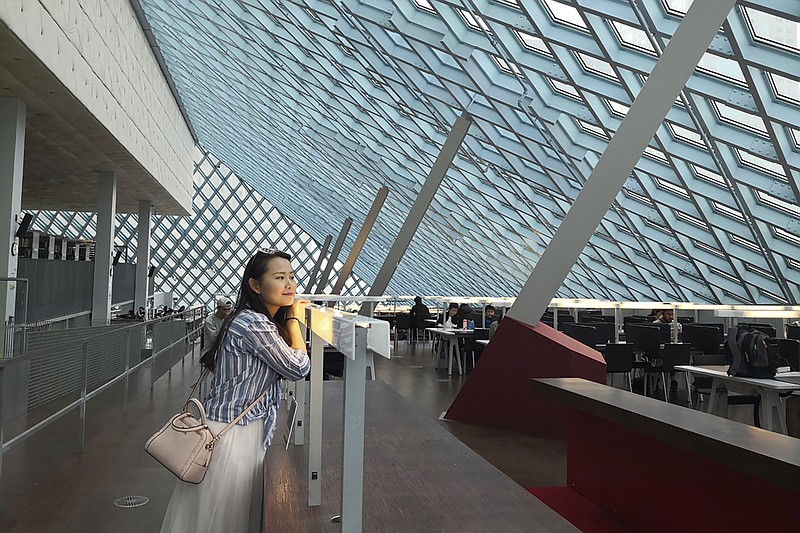BEIJING (AP) - Courtney Huang fell in love with the U.S. as a nursing student in Texas. She ended up staying 13 years and wants to become a U.S. citizen.
But Huang now finds her job, future and dreams of citizenship on the line since the Trump administration barred entry last month to non-U.S. citizens and residents flying in from China over the coronavirus outbreak.
[]
With crucial deadlines looming, her plans look increasingly at risk.
"I'm really scared," Huang said. "I have a lot there. If I don't go back, it's just going to be very difficult."
The U.S. suspended visa processing in China on Feb. 3, citing limited staffing during the virus outbreak. No deadline extensions have been announced, and it's not known when the suspension will be lifted. That's put hundreds of Chinese citizens applying for U.S. work visas in limbo, fretting as their jobs look increasingly at risk.
Huang had returned to China to see her parents over the Lunar New Year holiday in late January. She had recently landed a new job in California and her work visa was on the verge of approval when the American Consulate in Shanghai announced it was returning everyone's passports.
After weeks of fretting and weighing her options at her parent's home in eastern China, Huang flew to Thailand. She now plans to wait out a mandated 14-day self-quarantine before seeing if she can get her visa from the U.S. Embassy in Bangkok.
Though Huang was born and raised in China, her whole life is now in Oakland, California, where she has an apartment, car, friends and job. With her Christian faith and gregarious, outspoken manner, the U.S. feels like home.
"I feel like I fit in better there. Free speech, free religion," Huang said. Clean air, better career opportunities for women and a liberal social environment were also draws, she added.
Huang obtained a nursing degree in Texas, then a master's degree in bioengineering from U.C. Berkeley. She's on the verge of completing an M.B.A., with an eye toward settling permanently.
Now, Huang is concerned those plans could fall apart. Though her new employers, a company that provides clinical support for physicians, are understanding, Huang worries that as the months go by, there's a possibility she may lose her job - and with it, her right to work in the U.S.
Discouraging high-skilled foreigners from immigrating could undermine the U.S. economy and its global prominence, said Anastasia Tonello, former president of the American Immigration Lawyers Association.
Nearly 2.5 million Chinese were in the U.S. as of 2018, according to the nonpartisan Migration Policy Institute, and most are significantly better educated than the average American. China is also the main source of foreign students enrolled in U.S. higher education.
While health and safety are legitimate concerns, blanket travel bans aren't the answer, Tonello said.
"I just don't think this was thought through," she said. "These are just such broad strokes and can cause so much damage."
The U.S. isn't the only country currently restricting entry from China. Travelers face restrictions across the globe, from neighboring North Korea to far-flung New Zealand, Somalia, and Guatemala. Australia, a major destination for Chinese students and immigrants, also has banned arrivals and stopped issuing visas.
Such restrictions have been loudly criticized by China's Foreign Ministry, though Beijing frequently singles out the United States.
Yang and Huang both say they understand why a travel ban could help contain the virus. But they say the U.S. halt on new visas - with no deadline extensions or other accommodations - is frustrating and unreasonable.
Even more frustrating for Huang is the sense that the U.S. is trying to bar her from coming back.
"I'm not being respected. I work in the states as a talent; I pay my taxes diligently," Huang said. "This just makes me feel like, 'Oh, maybe I'm just not welcome in the states.'"
Even for Chinese with visas, the clock is ticking. Tom, a programmer from the epicenter of the outbreak, the city of Wuhan, had just obtained a master's degree in computer science from Emory University in Georgia. He has a U.S. visa but got stuck in Wuhan after the city was quarantined.

